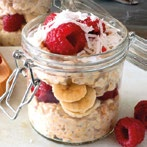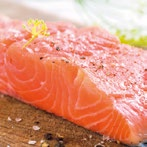Experts say that most cases of heart disease can be prevented by having a healthy diet. Follow these Do’s and Dont’s for a heart-healthy diet


Experts say that most cases of heart disease can be prevented by having a healthy diet. Follow these Do’s and Dont’s for a heart-healthy diet
♥ DO…
Eat your VEGETABLES! It’s the cheapest, simplest way to protect your heart and yet fewer than 10 per cent of people do it. Eating a diet rich in vegetables and fruits can lower blood pressure and reduce risk of heart disease and stroke. Also, the folate content of these foods help lower the blood levels of amino acid homocysteine, which appears to be linked to an increased risk of heart disease.
The higher the average daily intake of fruits and vegetables, the lower the chances of developing cardiovascular disease. All fruits and vegetables add to the benefits, but green vegetables like lettuce and spinach, and broccoli, cauliflower, bok choy as well as citrus fruits offer the most protection.
Watch your VITAMIN D levels. Having low levels of vitamin D has been linked to an increase in heart disease. In a study conducted with 114 participants in Singapore, approximately 42 per cent of them were vitamin D deficient. Hence it is wise to have your levels tested. Your doctor will recommend supplements if necessary, but safe sun exposure is the best way to maintain healthy levels. If you do suffer from low vitamin D levels, watch your weight. Being overweight is one of the main triggers, because fat cells absorb vitamin D and keep it from circulating throughout the bloodstream.
Get enough MAGNESIUM. A deficiency in this mineral can result in an abnormal heart rhythm. It is frequently prescribed in hospitals to treat arrhythmia (irregular heartbeat), so protect your heart by eating more magnesium-rich foods including pumpkin seeds, spinach and almonds.
♥ DON’T…
Go gluten-free. Unless you’re a coeliac. There is a link between eating glutenfree foods and a slight increase in heart attack, and experts say it could be due to a lack of fibre and B vitamins that tends to occur if you avoid foods with gluten. Overall, because wholegrains are thought to reduce cardiovascular risk, sticking to a gluten-free diet unnecessarily is not recommended for people.
Good To Know…
FAT: It’s a common belief that eating saturated fat clogs your arteries, resulting in heart disease. Yet numerous studies have failed to find a link between saturated fat, like that found in full-fat dairy, and heart disease, leading some experts to recommend we place less emphasis on reducing saturated fat intake. They stress that eating real food, being more active, and avoiding harmful fats found in some packaged foods and junk foods is the key to a healthy heart.
SALT: Salt intake has long been associated with high blood pressure. But recent studies indicate that although eating too much salt is bad for your health in general, keeping blood pressure in check is more about having healthy levels of potassium and magnesium than how much sodium we eat.
SUGAR: Eating a high-sugar diet has been shown to increase your risk of dying from heart disease even if you’re not overweight. The more sugar you eat the greater the risk, according to research. Sweet drinks have been linked to an increase in blood pressure, but although upper limits are given for fat and salt intake, no recommendations for sugar intake are specified when it comes to heart health. Always try to go for lesser or no sugar options in your drinks.
10 EVERYDAY FOODS THAT PROTECT YOUR HEART
1. OATS FOR BETA-GLUCANS
Oats contain beta glucans, a soluble fibre that dissolves inside the digestive tract and may have a beneficial effect on bad cholesterol. Choose wholegrain oats for the full fibre benefits.

2. LEGUMES FOR PROTEIN
People who regularly eat legumes appear to have a lower risk of heart disease than those who consume them less than once a week. Legumes may also help control blood sugar which helps to avoid complications from diabetes, one of which is heart disease.
3. SALMON FOR OMEGA-3S
Salmon and other fatty fish are rich in omega-3s, which have been found to inhibit plaque build-up and lower the risk of developing an irregular heartbeat. Turn to page 14 for recipes.

4. EXTRA-VIRGIN OLIVE OIL FOR MONO-UNSATURATED FATS
There’s an easy way to help reduce your risk of stroke and dying by 30 per cent. Eat at least four tablespoons of olive oil a day. It’s a good source of mono-unsaturated fats, which can help lower cholesterol and blood sugar levels.
5. TOMATOES FOR LYCOPENE AND POTASSIUM
The antioxidant lycopene may help remove bad cholesterol, keep blood vessels open and lower heart attack risk.

6. ORANGES FOR PECTIN AND POTASSIUM
The pulp and pith of oranges contain the soluble fibre pectin, which appears to neutralise a protein that causes heart-tissue scarring. And the potassium in oranges helps keep blood pressure under control.
7. NUTS FOR FIBRE, VITAMIN E AND OMEGA-3S
Vitamin E works to lower bad cholesterol, and certain nuts like walnuts are high in omega-3s to help maintain a healthy heart. Some people avoid nuts because they’re high in fat, but studies show people who regularly eat nuts are slimmer than those who don’t.

8. LEAFY GREENS FOR MAGNESIUM, FIBRE, FOLATE, POTASSIUM, VITAMIN E AND LUTEIN
Increasing the amount of leafy greens you eat will keep your magnesium and potassium levels topped up, as well as provide plenty of heart-healthy vitamins, fibre and antioxidants. Kale, in particular, contains a compound that seems to protect the arteries from plaque.
9. GARLIC FOR ALLICIN
Garlic may help reduce blood pressure and plaque build-up. Researchers found that plaque growth was slowed by 50 per cent in people who took garlic extract compared to those who didn’t.


10. BERRIES FOR ANTIOXIDANTS
The antioxidants in berries may help decrease blood pressure and dilate blood vessels. Women aged 25 to 42 who ate more than three servings of blueberries and strawberries a week as part of a study had a 34 per cent lower risk of heart attack after testing, compared with those who ate lesser amounts.
TEXT: BAUERSYNDICATION.COM.AU / ADDITIONAL REPORTING: SANDHYA MAHADEVAN / PHOTOS: 123RF.COM























